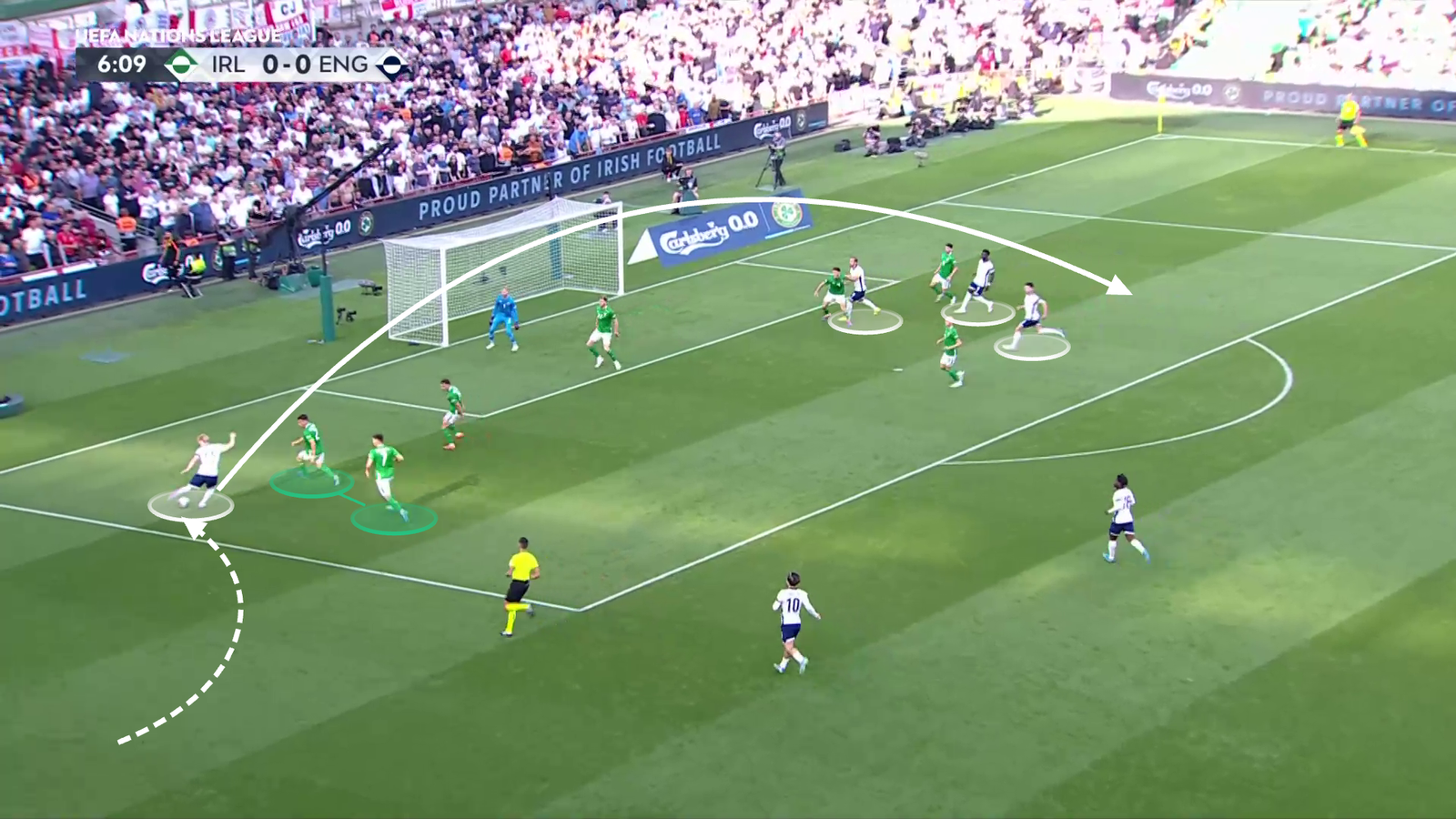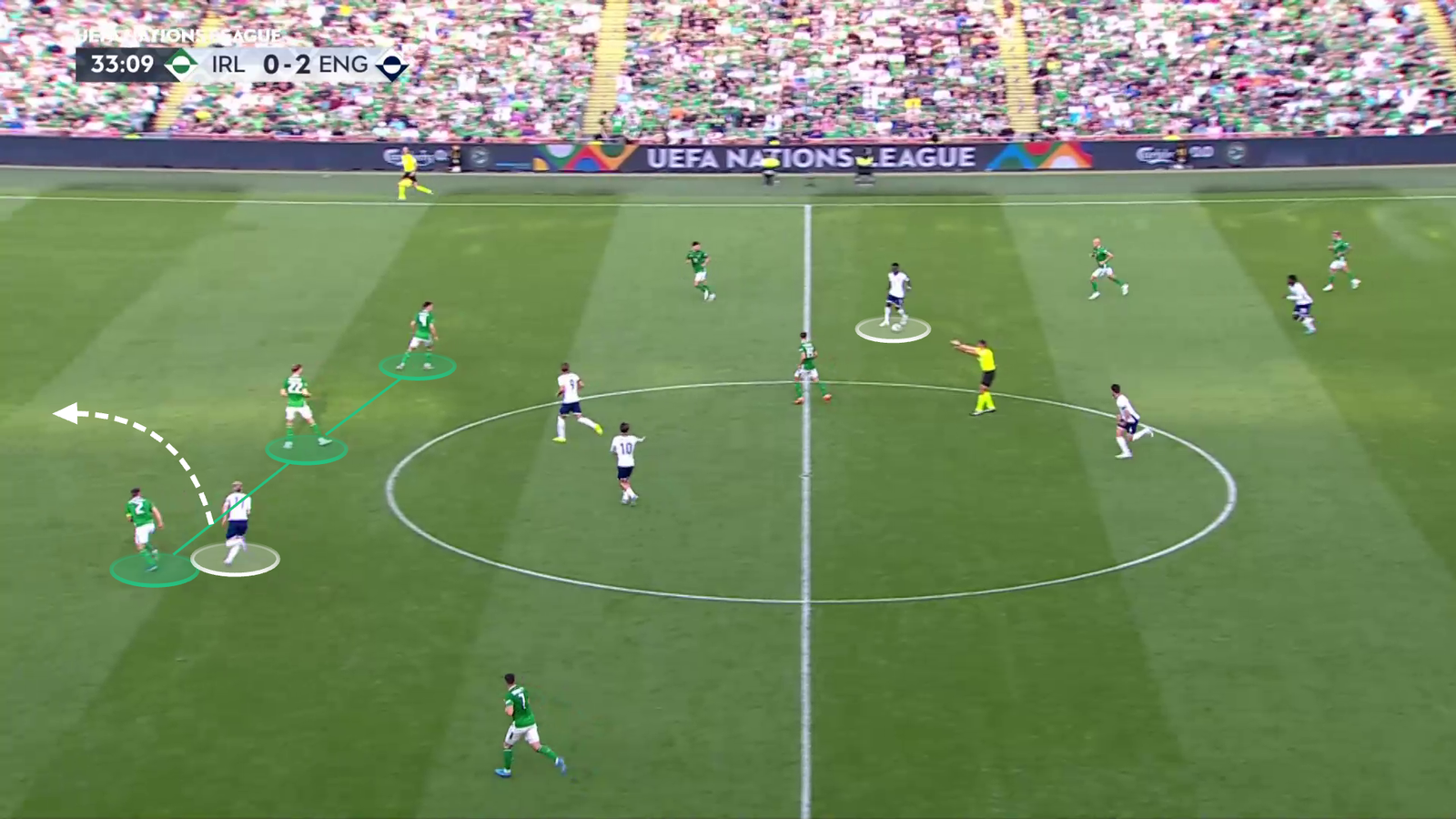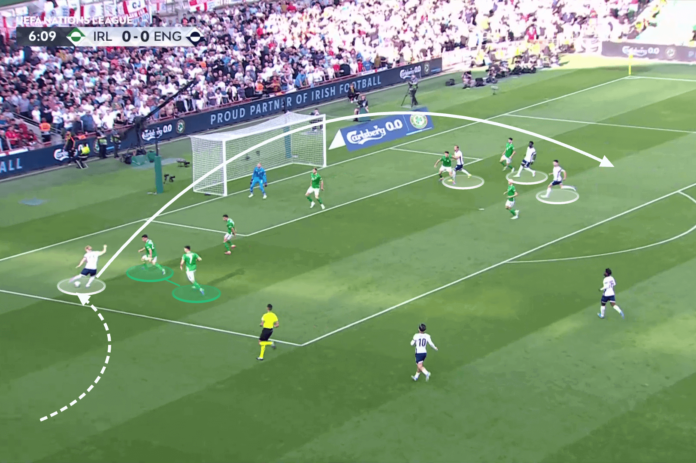Anthony Gordon was damningly clear in his assessment of England’s Euro 2024.
“Failure — because we lost,” he told ITV. There were no hesitations to the follow-up: what were England missing?
“Expression of freedom. You could say we controlled the games, but I don’t think we were very dynamic; we weren’t relentlessly trying to score”.
Gordon could, justifiably, be accused of sour grapes. He started every game on the bench and Gareth Southgate only brought him off it once, as an 89th-minute substitute for Phil Foden in the final group-stage game — a 0-0 draw against Slovenia.
His point was analytical more than emotional. England only created six big chances in seven games, with nine countries bettering that. Spain, who created 25, beat England 2-1 in the final.
Spain won the game through dynamic, dribbling wingers who ran in-behind. For the opener, Lamine Yamal and Nico Williams combined for the latter to score from 10 yards out. England needed a Cole Palmer finish from outside the box.
Fast forward 55 days from the final and England are in Ireland for their first game since the Euros and Southgate’s resignation. Gordon is given only his second start and fifth cap total.
Foden, along with Palmer and Ollie Watkins, withdrew from the squad. There will come a time where Lee Carsley, interim head coach, has a selection headache. This time, England were dynamic and relentlessly trying to score goals — for the first half, at least.
“We’ve tried to get three or four different ways of playing,” Carsley said pre-match. “We have to play to players’ strengths. It’s not about my style or way of playing.”
Inside the first minute, Trent Alexander-Arnold, who had rolled into midfield from right-back, hit a long, diagonal pass to Gordon. Ireland had committed to press, with right wing-back Matt Doherty stepping up to mark No 8 Jack Grealish.
Gordon stayed high and wide, exploiting Doherty’s position. The move only broke down as he miscontrolled Alexander-Arnold’s pass and the ball hit his arm.
Those passes continued throughout the opening 45 minutes. On one occasion, again when Doherty jumped to Grealish, left centre-back Harry Maguire released Gordon — he dribbled inside then out and fired a cross which was overhit.

The end product needed work, but Alexander-Arnold collected the loose ball and found Harry Kane with a cross.
Alexander-Arnold to Gordon was the key pass in England’s opener. Another long, raking ball from a central position was hit in-behind the Irish defence. Gordon arced his run inside Doherty and took a smart, heavy first touch to run through to goal and take the line of Nathan Collins as he recovered.
Left with just the goalkeeper to beat, Gordon should have scored, but his finish was low and central, allowing Caoimhin Kelleher to keep it out with his feet. Gordon picked up the loose ball and found Kane with a cutback. When his shot was blocked, Declan Rice followed up to fire in.
On his return to the Aviva Stadium, Declan Rice fires @England ahead with a thumping strike 💥
Watch #IREvENG on @ITV pic.twitter.com/yoBbQiDITC
— ITV Football (@itvfootball) September 7, 2024
With Levi Colwill, left-back on paper but tucking in to play as a third centre-back and give cover, Gordon had full licence to switch positions with Grealish and run in-behind.

England had the left-sided balance that they dreamed of in Germany, when Kieran Trippier (right-footed) was a makeshift left-back and Foden played more as a second No 10 than left-winger.
Foden might be one of the finest English technical players ever, especially in what Pep Guardiola calls the “pockets”, and he has matched or improved his Premier League goals plus assists tally in each of the past four seasons.
In 2023-24, he scored 19 Premier League goals and assisted eight, winning the Premier League Player of the Year award. Cole Palmer was the only Englishman involved in more goals. And yet, England are a better team with Gordon in than Foden.
In fact, Foden has only scored four times in 41 caps, and just once since the 2022 World Cup. He is the best of the profile that England have in abundance: a ball-to-feet No 10 who can receive and dribble under pressure, and shoot from distance.
Against compact opposition blocks, and back-fives especially, solutions have to come from out wide. England had 76 per cent possession against Ireland.
Games like that offer limited space for a Foden profile, especially when England have a team built around Jude Bellingham and Harry Kane, a No 9 who has built his game on dropping in.
Gordon told ITV that his liking to run in-behind when Kane drops in means teams have to “pick their poison (as to) what way they want to defend. We created a lot of chances from it.”
Even though Carsley gave considerate positional freedom, Gordon said “we’re always trying to score, so we don’t want everyone coming to the ball. That’s my role and Bukayo’s (Saka) role — to stretch them and cause danger in-behind”.
Foden’s touches at the Euros primarily came out wide and in deeper positions. Trippier, wanting to cut back on to his right foot, was of limited threat on the overlap, so teams marked Foden more tightly when he moved centrally.

Gordon is a completely different profile. Of England’s starters against Ireland, only Kane (27) had fewer touches than Gordon (41). The Newcastle winger didn’t attempt a dribble.
He benefited from Doherty’s positioning and the chance to run at Seamus Coleman, which was a mismatch for pace, but Coleman spent years training against Gordon when they were at Everton together. Few players will have defended against him as much.
Yet neither Coleman nor Ireland could stop him. There was a four-v-two counter-attack, from an Ireland direct free kick, where Gordon found Kane with a cutback, but his shot was saved.
There was one moment that captured Gordon’s tactical maturation perfectly. He pressed Coleman into a rushed pass, which hit Kane, and England won the ball in their own half. Gordon made an early, arced run inside Coleman in the hope that Saka would play a through ball.

When that pass did not come, he stayed central and England built their way up the pitch, eventually finding Gordon through Kane, though his shot was blocked.
If the counter-argument is Ireland’s 58th-place FIFA ranking, then that falls apart based on the quality of England’s Euros opposition.
They beat Serbia (32nd) 1-0 on matchday one, drew 0-0 versus Slovenia (52nd) on matchday three and needed extra time to beat Slovakia (44th) in the round of 16. England had six big chances in Dublin, as many as Euro 2024 entirely.
There are myriad reasons to justify Gordon’s inclusion as a starter, even if he can be impactful from the bench.
Marcus Rashford and Raheem Sterling, England’s main left-side individualistic wingers under Southgate, have struggled for fitness and form and did not make the Euros squad. It is a profile England have never had many of.
He did not hit Foden-level numbers, but 2023-24 was a breakout season for Gordon, who join Newcastle from Everton in January 2023. Gordon scored 11 Premier League goals and set up 10 more — one of only five players with double digits in goals and assists.
Finally, there is the importance of the coach-player relationship. Gordon was player of the tournament last summer when England Under-21s, managed by Carsley, won the Euros. Gordon played as a false nine and scored three times.
England need more of Gordon.
Read the full article here


